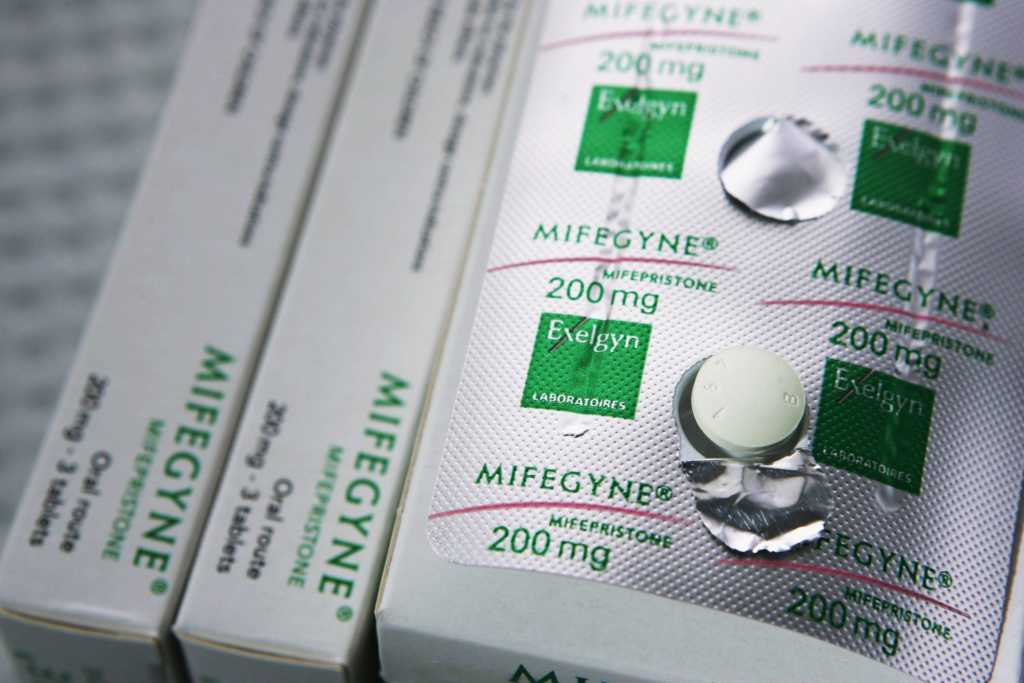California lawmakers are currently considering legislation to require public college and university campuses to provide students with free access to an abortion drug recently linked to severe behavioral and biological consequences.
The bill — S.B. 24 — is a slightly altered version of legislation presented last year, when former Gov. Jerry Brown (D) was in office. He vetoed the bill due to the simple fact abortion services are “widely available” not at all far from virtually any state campus.
During an interview Thursday with Faithwire, Tony Sands, president of the Right to Life League of Southern California in Pasadena, commended Brown — who is hardly a champion for the pro-life cause — for vetoing the bill.
“It’s bad law,” Sands explained. “Part of there reason it’s bad law is women who take this, if something goes wrong with this, who do you blame? Well, who you’re going to blame is the state.”
Gov. Gavin Newsom (D) said late last year, before being sworn in, he “would have supported” the bill. But he has not yet commented on the latest iteration of the proposal.
If the governor does sign the bill, though, he is putting the state’s seal of approval on medicinal abortion, suggesting it “is good medical practice,” opening up California “to all kinds of blame and lawsuits,” according to Sands.
S.B. 24 was approved by the California state Senate in May and is now awaiting a vote in the state Assembly before being sent to Newsom’s desk for his signature. According to the proposal, the law wouldn’t take effect until January 2023 and would require $10.2 million in private funding for equipment and training.
“When pregnant young people decide that abortion is the best option for them, having early, accessible care can help them stay on track to achieve their educational and other aspirational life plans,” the legislation states.
The California Catholic Conference — whose members are urging people to oppose S.B. 24 — is arguing the bill “is specifically written in such a way to exclude pro-life counseling” and “fails to allow students the opportunity to know their life-affirming options.”
Although the progressive left claims to be devoted to female empowerment, S.B. 24 significantly limits the options available to women faced with unexpected pregnancies.
“We hear about empowering women,” Sands said. “How does this give them choices?”
Sands argued abortion advocates live with the “mindset” abortion is the only option for aspirational women who become pregnant unexpectedly. He condemned the legislation for failing to provide any pro-life options, like giving pregnant women “access to tutoring or to extended class hours or to additional help or baby care.”
What else?
In addition to protecting the unborn, opposing S.B. 24 is good for the health of the women who may be terminating their pregnancies via RU-486, a clunky name for a drug cocktail containing mifepristone and misoprostol, chemicals that, when taken together, unnaturally induce a miscarriage.
A recently published, peer-reviewed study conducted over the course of three years by behavioral neuroscientists from Franciscan University in Steubenville, Ohio, has confirmed what many in the pro-life community have been saying for years: taking abortifacients like RU-486 can result in “significant negative biological and behavioral changes” for women who ingest them.
Abortion, Sands noted, “is not a consequence-free option.”
And despite a dearth of clinical research into the drug, RU-486 has been doled out to abortion-seeking women around the world. And now, a new study, which was conducted on rats, has determined the cocktail is linked to depression and anxiety.
The study, published in the journal Frontiers in Neuroscience, split 81 rats into four groups: pregnant rats that received RU-486, non-pregnant rats that received the drug, pregnant rats that did not receive RU-486, and non-pregnant rats that didn’t receive the medication.
Ultimately, it was only the rats whose pregnancies were terminated by RU-486 that showed significant decreases in body weight and food intake as well as a steep declined in activity. Each of those symptoms are signs of depression and anxiety.
“The most important findings of this research are the clear distress that was observed, along with the anxiety and depression-like behavior only in the rats that underwent the abortion using the mifepristone and misoprostol,” Stephen Sammut, professor of psychology at Franciscan University and a co-author of the study, told the National Catholic Register.
Additionally, earlier research has indicated abortion — particularly when performed into the second trimester — increases a woman’s likelihood of developing breast cancer.
“In California, of all places, where people are adamant about going gluten-free, vegetarian, or vegan, they’re going to turn around and put this level of hormones or other hardcore medications in their bodies?” Sands said. “But they want to push the idea that, to have the life you want, you have to kill your baby.”
“It’s preaching from a standpoint of selfishness,” he continued, later adding, “Women deserve better than abortion.”



